

Sainimere Boladuadua is completing a Fullbright scholarshop in the United States.
Photo/Fullbright NZ/Unsplash
Fiji scholar bridges indigenous wisdom and modern healthcare for Pacific wellness
Researcher Sainimere Boladuadua collaborates with Native American tribes, advocating for holistic approaches that prioritise cultural values and community involvement.

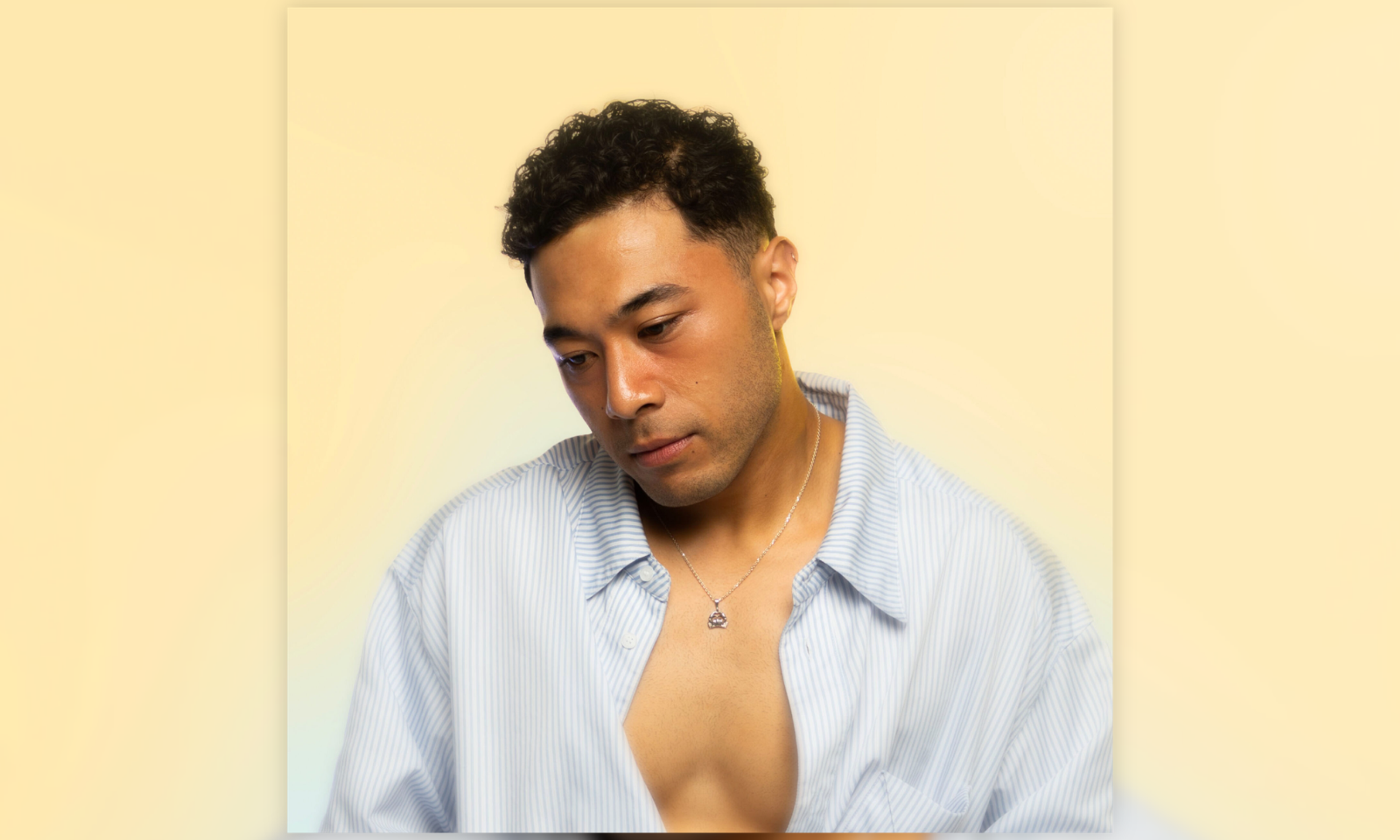
Tyrun re-imagines Niuean love in smooth new R&B single ‘Fila’

Digital Lifeline: New app helps Sāmoans abroad reclaim their heritage
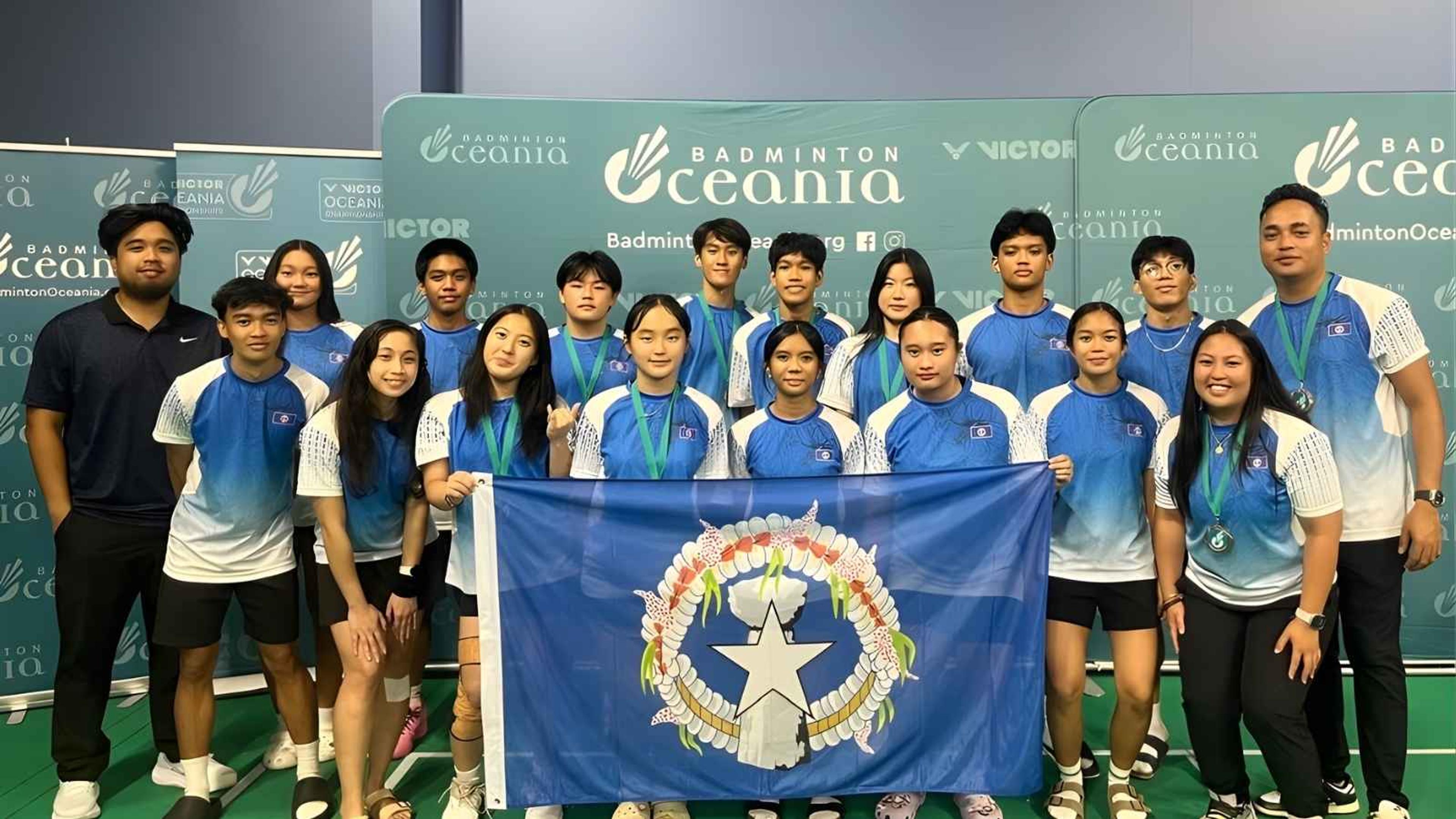
Northern Mariana Islands smash regional barriers with historic Auckland bronze


Tyrun re-imagines Niuean love in smooth new R&B single ‘Fila’

Digital Lifeline: New app helps Sāmoans abroad reclaim their heritage

Northern Mariana Islands smash regional barriers with historic Auckland bronze
University of Auckland doctoral candidate Sainimere Boladuadua is investigating how traditional worldviews can be integrated with scientific research to improve health outcomes.
Boladuadua (Somosomo, Cakaudrove, Levuka-i-Yale, Kadavu - Fiji) is halfway through a 10-month Fulbright fellowship at the Johns Hopkins Bloomberg School of Public Health in Baltimore, United States.
Speaking to Nemai Tagicakibau on Pacific Days, Boladuadua says indigenous values can often conflict with Western approaches to medicine.
“We see ourselves living in this ecosystem of the vanua, lagi and bulu - our connection to the land, to the sea, to the environment around us,” she says.
“If any of those relationships are severed… that can manifest in sickness or even death.”
The Ōtago and Auckland University graduate received the prestigious Fulbright Science and Innovation Graduate Scholarship in 2024, which enables her to conduct postgraduate study or research at US institutions.
As part of her scholarship, Boladuadua has been collaborating with the Navajo and White Mountain Apache tribes, observing how they integrate traditional practices with academic research to develop healthcare solutions.
“Most of the professionals I work with are from the communities they serve. Indigenous health knowledge is not just complementary but essential,” she says.
“It provides a holistic understanding of health that includes physical, mental, and spiritual well-being. By valuing and incorporating indigenous perspectives, we can create more effective and culturally appropriate healthcare solutions.”
Watch the full interview with Sainimere Boladuadua below.
A global perspective
In the United States, Boladuadua says indigenous beliefs are incorporated into mainstream healthcare.
“They’ve got their medicine men, the traditional healers… they have space for them within that healthcare system,” she says. These two worlds coming together… for the best care for the patient.”
Boladuadua has been impressed by the range of systems designed to support indigenous communities.
“They have their own tribal governance structures, they've even got their own Supreme Court, they've got health facilities from the health clinics to the hospital settings and secondary care.”
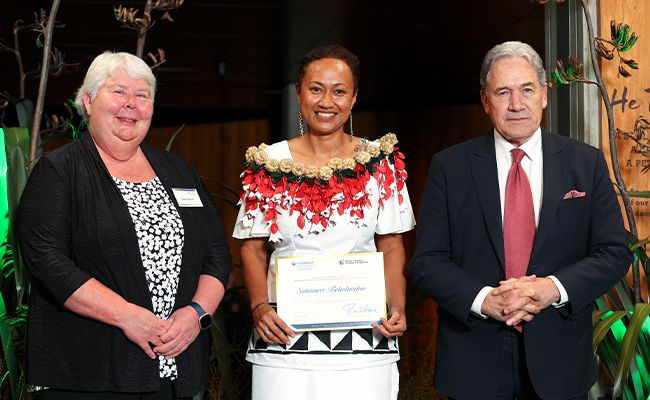
Dr Sainimere Boladuadua (centre) at the Fulbright awards ceremony with the United States Consul General Sarah Nelson, and Minister of Foreign Affairs and Honorary Chair of Fulbright NZ, Rt Hon Winston Peters. Photo/Ōtago University
She currently resides in Washington D.C. with her family and travels an hour each day to attend classes in Baltimore.
Boladuadua has clinical experience in New Zealand and Fiji, and has shared her knowledge with American students by delivering a guest lecture at Johns Hopkins University, titled Reimagining Global Health - A Pacific Perspective, which highlighted current health issues in the region.
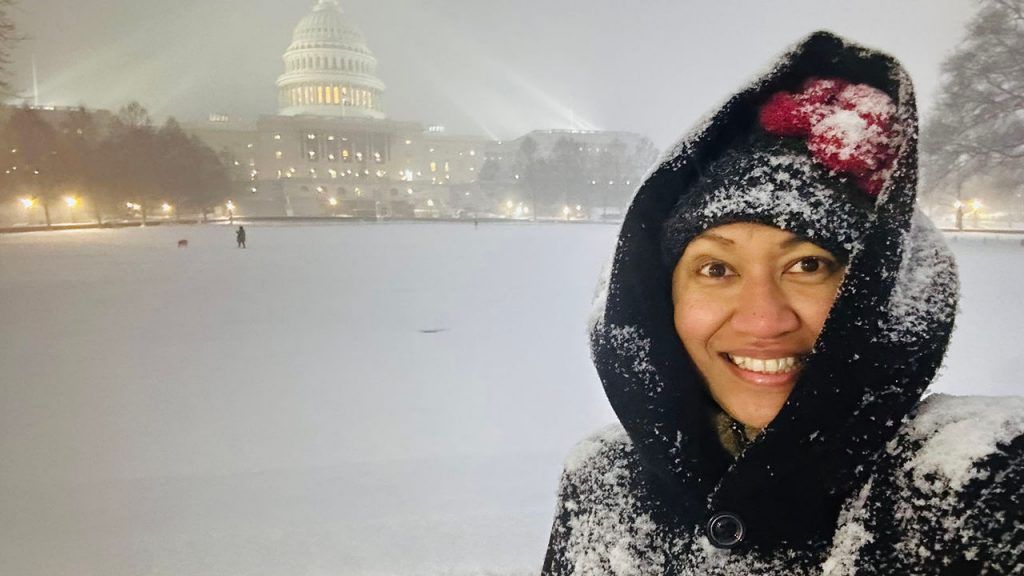
Doctoral candidate Sainimere Boladuadua is currently based in Washington, D.C.. Photo/Supplied
Passion for the Pacific
Boladuadua’s PhD research focuses on improving healthcare access for indigenous populations, particularly Fijian children suffering from acute respiratory illnesses.
“The most common ones in Fiji are pneumonia and bronchiolitis. It's still one of the leading causes for admissions and for deaths in our children at home.”
Her research combines data analysis with personal interviews to better understand the healthcare pathways, personal experiences, and perspectives of Fijians.
"These are the different worlds that a Fijian person is having to navigate and will inform their behaviour in seeking health, whether they go to the traditional healers first, ke o ramusu the bone setter, or [traditional healer for serious burns]."
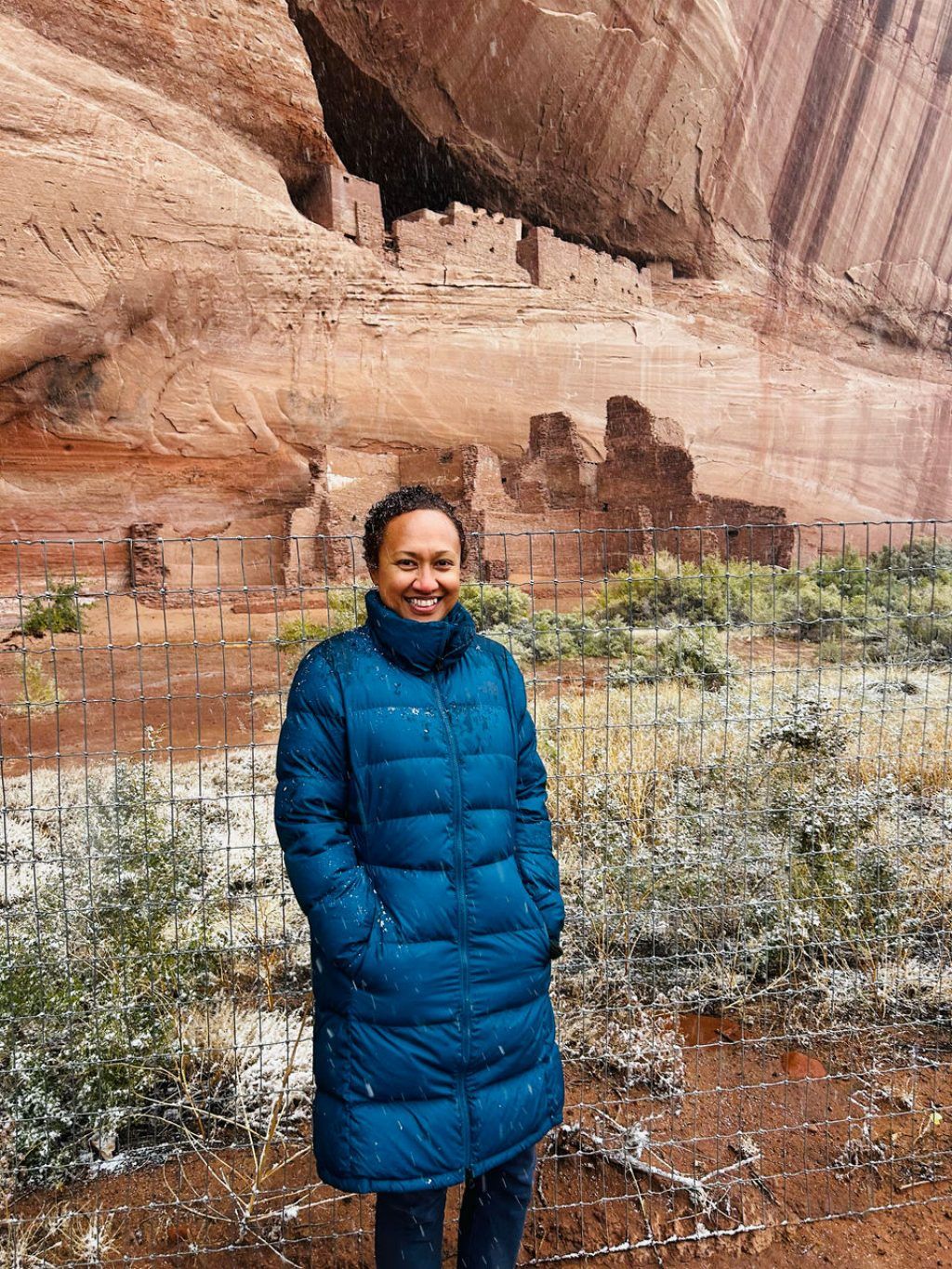
Dr Sainimere Boladuadua visiting the Navajo nation. Photo/Supplied
Boladuadua says some beliefs can create confusion for patients.
“When a Fijian person has these two primary worldviews… and then they come into contact with the health system, our health system is based on a Western biomedical system. It doesn’t accommodate … it’s not based on a traditional worldview.”
Encouraging future leaders
She believes that recognising indigenous perspectives is crucial to public health.
“We have the solutions to the world’s problems. Whether it’s climate change, health, or the environment - it just goes back to what our forefathers taught us.”
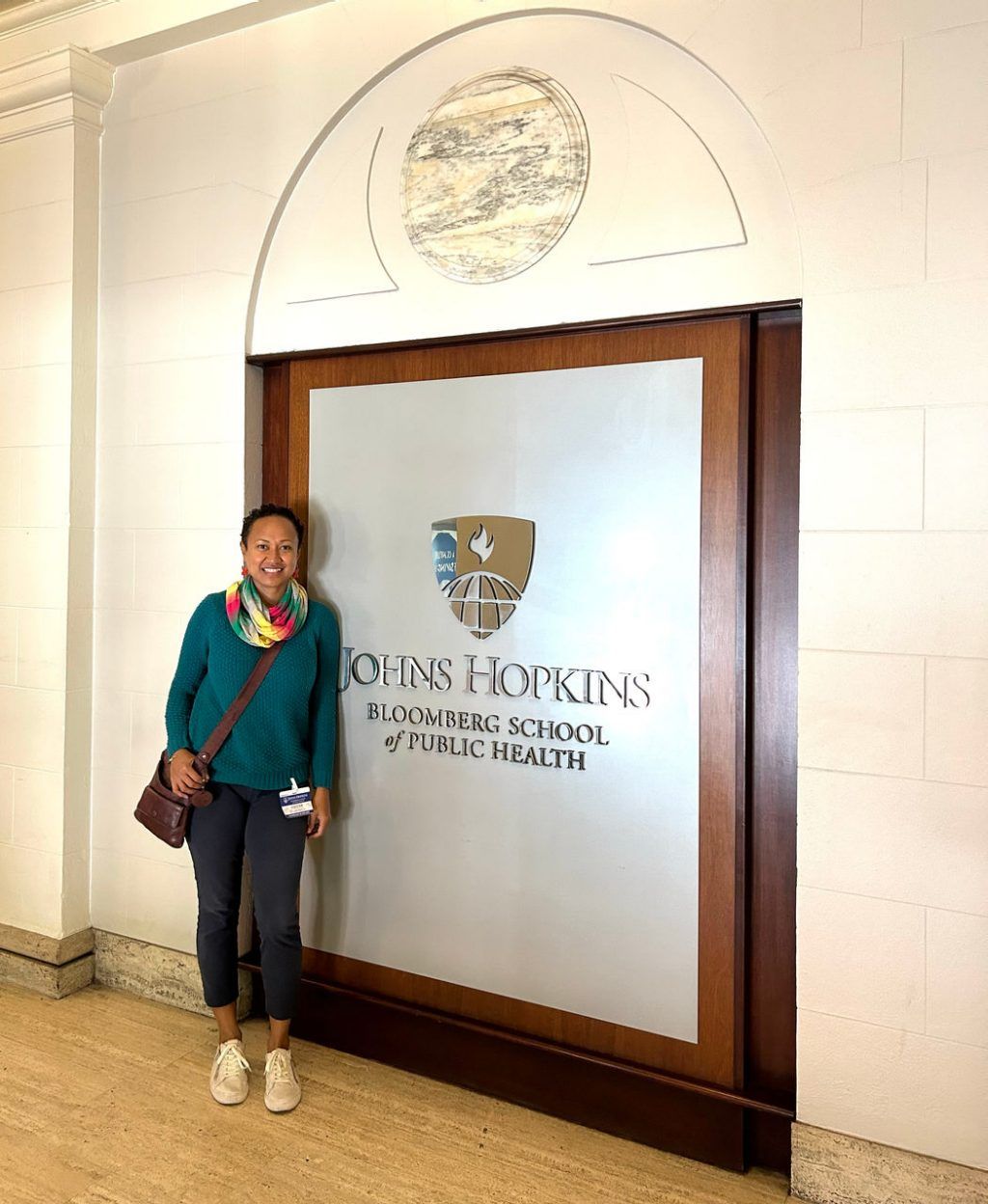
Photo/Supplied
Boladuadua encourages young people to consider health-related fields of study.
“Dream big. Don’t limit yourself,” she urges. “Talk to people who’ve done it… Just go for it.”
She believes Pacific people should aspire to greatness and think creatively.
“We have so much potential that we are not aware of … We Pacific people are very resilient and we will adapt and we’re very resourceful. Wherever we are, we’ll thrive.”